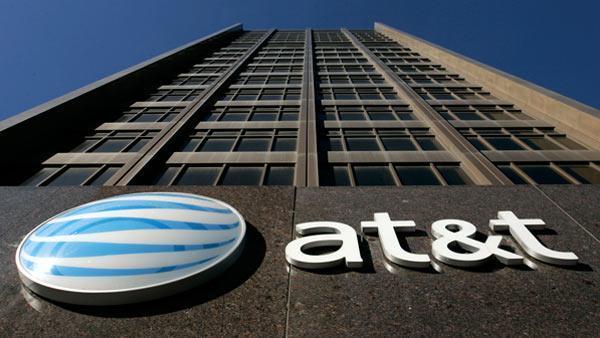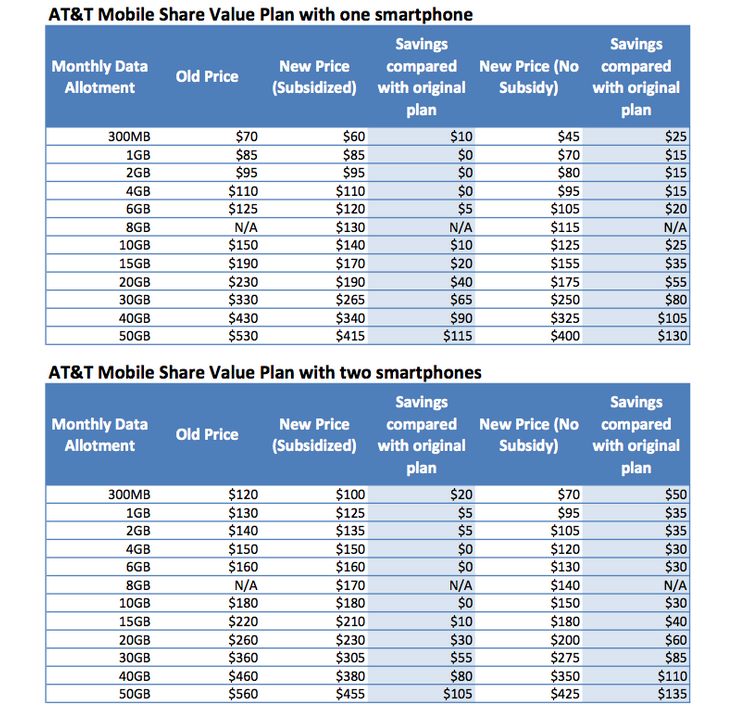
The carrier situation in the United States is kind of in an iffy one right now. Earlier this year, we had a huge shift from what we considered "the norm" when T-Mobile set its "UNcarrier" initiative into motion. They ditched contracts, slashed prices, and even addressed the common complaint that two years is just too long to wait for a lot of people when it comes to upgrading devices. Essentially, T-Mobile took everything we were told we can't do and blew the whistle on the whole thing. We can have cheaper services, we can upgrade more often, and we don't have to sign a contract to get any of this stuff. You're free to leave whenever - all you have to do is pay for the remaining amount on your phone, if you owe any. None of that early termination fee stuff.
So naturally, it's time to raise an eyebrow at other carriers. What's going on, guys?
They all played it pretty cool at first. Oh, it's just T-Mobile. They were just on their last leg not that long ago, how big could they really get over a few simple changes like these? Even I was kind of skeptical about all of this at first. As somebody who lives in an area where T-Mobile seems spotty once you get the suburbs, I had to question how big this initiative could get. But just because my area doesn't get great service doesn't mean that other areas also don't - and as it turns out, at the moment it depends on the luck of the draw. In fact, I've seen this with just about every carrier except for Verizon. Some areas get really good sweet spots with Sprint, others get it good with AT&T, and others get it good with T-Mobile. Just about all of them seem to get it good with Verizon; but the point of the story here is that there are plenty of places in the U.S. with a strong T-Mobile signal that can take advantage of all of these goodies that the magenta carrier is bringing to the table. And in a lot of those places other carriers should see T-Mobile as a viable threat.
It was only recently that other carriers starting offering similar services. For example, every carrier now offers their own variant of an early upgrade program, which is pretty nice given how fast technology advances these days. After about half a year it seems that the specs on your smartphone, if you were fortunate enough to get it new, are now obsolete. Not much has improved aside from that, although it seems that AT&T was making an effort to lower its pricing to be more comparable to T-Mobile's pricing.
But I use the term effort very loosely here, because from what I see, the effort only affects people who were going to spend a lot - and I mean a lot - of money each month on their bill.
AT&T has a lot of subscribers on their network. In fact, they're the second largest cellular carrier in the United States, coming in behind Verizon Wireless. They are one out of the two carriers that use GSM technology to connect to their network, the other one being T-Mobile. This is where AT&T and T-Mobile come into direct competition with one another, because by being on a GSM network and both carriers using SIM cards to connect to a network, it is entirely possible to use an AT&T phone using a T-Mobile SIM card. So when T-Mobile offers their enticing new plans, AT&T customers who aren't currently in contract with AT&T can get their phones unlocked and could potentially have a smooth transition over to T-Mobile. Of course, there is always fine print involved in such a switch and just because you can switch doesn't mean you should. There's a lot of technical stuff involved in a switch that may severely handicap the speeds on your smartphone when using one network's phone with another network's services. But, it is possible and it does happen quite often. And why not? T-Mobile's prices are to die for.
But what about AT&T's new plans? Are they enough to warrant old subscribers from leaving and new ones to join? Tech blog BGR made some easy-to-read tables that lay out exactly what AT&T's changes are and how they could (or couldn't) save you any money. I will say, however, that it is cool of AT&T to drop phone subsidies after your phone is paid off in full by dropping your bill $15 a month, but at the same time... the data pricing and plans are kind of ridiculous.

First of all, if a customer is on a smartphone, they're probably going to be using more than 300MB of data every month. Also, if it turns out that they're not, they shouldn't have to pay $20 to use such a small amount. And yes, that is actually how much AT&T is charging for data. T-Mobile alone gives 200MB out for free on tablets every month. Another issue I see is that AT&T is offering way, way, way too many data options on their list, and still for too much money compared to others. I know that I always say options are a good thing, but when you have a list going from 300MB all the way up to 50GB of data, can't you just make it simple and call it "Unlimited"? If people are using 50GB of data on their smartphones every month, I want to know what it is that they're doing. That's like having a whole Brady Bunch family streaming Netflix movies 24/7 over the period of one billing cycle - and that includes the maid and the dog. Sometimes it's just btter to keep it simple.
Even when you finally have your phone paid off and you no longer have the subsidy fee on there, the average person is not likely to save more than $15 a month.
I'm sure maybe some people will enjoy the changes, but I don't think that these changes are going to have people flocking to AT&T this holiday season.
What are your thoughts, readers? Do the changes that AT&T made to their plans make you want to switch over? Let us know your thoughts in the comments below!